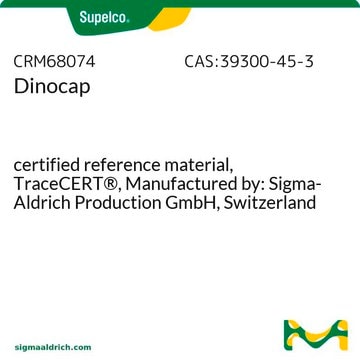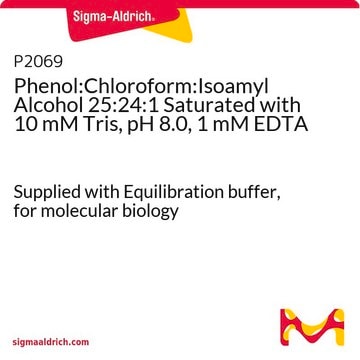133221
Bis(5-chloro-2-hydroxyphenyl)methane
95%
Sinónimos:
Dichlorophen, Dichlorophene
About This Item
Productos recomendados
Quality Level
assay
95%
form
powder
mp
168-172 °C (lit.)
solubility
95% ethanol: soluble 1g/g
methanol: soluble
petroleum ether: soluble
toluene: very slightly soluble
water: insoluble
functional group
chloro
SMILES string
Oc1ccc(Cl)cc1Cc2cc(Cl)ccc2O
InChI
1S/C13H10Cl2O2/c14-10-1-3-12(16)8(6-10)5-9-7-11(15)2-4-13(9)17/h1-4,6-7,16-17H,5H2
InChI key
MDNWOSOZYLHTCG-UHFFFAOYSA-N
¿Está buscando productos similares? Visita Guía de comparación de productos
General description
Application
Disclaimer
signalword
Warning
hcodes
Hazard Classifications
Acute Tox. 4 Oral - Aquatic Acute 1 - Aquatic Chronic 1 - Eye Irrit. 2
Storage Class
11 - Combustible Solids
wgk_germany
WGK 3
flash_point_f
Not applicable
flash_point_c
Not applicable
ppe
dust mask type N95 (US), Eyeshields, Gloves
Elija entre una de las versiones más recientes:
¿Ya tiene este producto?
Encuentre la documentación para los productos que ha comprado recientemente en la Biblioteca de documentos.
Nuestro equipo de científicos tiene experiencia en todas las áreas de investigación: Ciencias de la vida, Ciencia de los materiales, Síntesis química, Cromatografía, Analítica y muchas otras.
Póngase en contacto con el Servicio técnico









